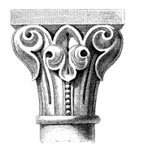
Lost Shepherds, Vulnerable Sheep
THE NEGLIGENT CATHOLIC HOMILIST
Christianity is a dynamic, challenging, and difficult way of life. It is not a religion for the sheepish. Yet Our Lord and Savior more than once drew parallels between His followers and the four-footed woolly ruminants of the genus Ovis. “I am the good shepherd. The good shepherd lays down his life for his sheep.” “I have other sheep, that are not of this fold.” “You do not believe, because you do not belong to my sheep.” (Jn. 10:11,16,26) Speaking for myself, I am not aware of possessing any particularly sheepish characteristics. I ruminate — but only my thoughts, not my food. I eat greens, but never grass. I feel no need to be dipped or shorn. But trusting in Jesus’ word, I acknowledge myself as one of His flock — and I wonder sometimes what Jesus means by referring to me as a sheep.
So when I saw a book by a professional sheep rancher recounting his sheep-raising experiences and reflecting on the 23rd Psalm (“The Lord is my shepherd, I shall not want”), I read it eagerly. Philip Keller, a sheep rancher in East Africa, writes that he followed sheep-raising practices like those of the ancient Middle East, the very ones on which Jesus presumably drew for His divine imagery of shepherding. Reading Keller, I grasped the central fact about what it means to be a sheep and what it means to be a shepherd. Sheep need guidance, and shepherds need to give it. Sheep are ever prone to wandering away, just as Isaiah described the Hebrews, “All we like sheep have gone astray; we have gone every one to his own way” (Isa. 53:5).
To keep his flock safe and fit, to lead them “in green pastures, beside safe waters,” Keller had to be endlessly and variously diligent. Some ponds that looked refreshing were brackish or toxic. Bushes with bright berries looked inviting to the sheep — but the berries were poisonous. Parasites on the skin had to be guarded against. Greener pastures always attracted the flock, and Keller had to know which fields had hidden sinkholes and sudden cliffs. Predators lurked to pick off those who wandered away to explore on their own. Keller had thousands of sheep, and he had to face the fact that not every sheep would make it where he was trying to lead them. But Keller was committed to the principle that no sheep would ever be lost through his neglect.
I couldn’t help but think of our Catholic pastors and associate pastors (“pastor” is Latin for shepherd). They are commissioned by the Good Shepherd to see to our care and guidance: “Feed my lambs…tend my sheep,” the Risen Lord instructed Peter (Jn. 21:15-16). As I learned from Keller something about being a sheep, perhaps pastors might learn something about being real shepherds. First, they can vow, as he did, that not one of us will be lost through their neglect. Second, they can re-evaluate their shepherding techniques. They might decide to use the foremost spiritual shepherding technique of first-century Palestine. This supreme tool was employed effectively by the Good Shepherd Himself and by His forerunner John the Baptist. It is the voice of the preacher, and there is no tool like it: the human voice speaking truth, counseling wisdom, teaching with candor, compassion, and authority. John was a voice crying in the wilderness, said Jesus. And of Himself Jesus said, “My sheep hear my voice, and I know them, and they follow me” (Jn. 10:27).
You May Also Enjoy
Here we follow-up on some disgraced prelates and their inner circles who did the dirty work of covering fraudulent, criminal behavior.
San Francisco Catholic Charities will continue to allow same-sex parents to adopt children, but they will refer them to another agency.
Hundreds of Catholic groups -- dioceses and religious orders -- help fund their work through investments in porn-related companies.

